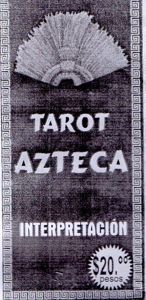Short version: “CS:GO gambling” sits in a legally gray zone in the U.S. because state laws define gambling broadly (consideration + chance + prize), and many states treat skins with cash-out value as “something of value.” That means whether a site is allowed to operate for you depends on your state, not just the site’s own statement. Some community members describe CSGOFast as a CSGO Case Opening legal website in the USA, but “legal” is not universal across states and hinges on licensing and how the site actually operates where you live.
What typically happens on these sites:
- You deposit CS:GO skins or cash, then play chance-based modes (case opening, crash, coinflip, roulette, jackpot) to win more skins/credits.
- If the platform allows cashing out (directly or via third-party markets), regulators often view the activity as real-money gambling.
- Valve’s system wasn’t designed for wagering, and historical crackdowns show platforms can disappear overnight, taking balances with them.
Key legal points to consider:
- State jurisdiction: Washington, for example, has historically taken a hard line toward skins gambling. Other states vary; some require an explicit gaming license for any chance-based wagering with monetary value.
- Federal overlay: The Unlawful Internet Gambling Enforcement Act (UIGEA) targets payment processing for unlawful internet gambling. Using skins instead of traditional currency doesn’t automatically bypass risk if the underlying activity meets your state’s definition of gambling.
- Platform terms: Using Steam inventories for commercial gambling can violate platform rules, leading to trade locks or account actions even if you never face legal penalties.
- Advertising and disclosures: The U.S. Federal Trade Commission has acted against undisclosed promotions in the CS:GO space (see the FTC’s CS:GO Lotto settlement: this case), illustrating that authorities pay attention to how these services are marketed.
Risk checklist beyond legality:
- Funds and item security: If a site shutters or is geo-blocked, retrieving deposits can be impossible. Offshore operators typically don’t offer strong consumer recourse.
- Fairness/odds: “Provably fair” claims vary; without third-party certification or transparent code plus reproducible seeds, you can’t verify house edge or manipulation. Even legit RNG setups still carry a house edge that makes long-term loss statistically likely.
- Age gating and KYC: Some sites skip robust age verification. If a platform later adds KYC for withdrawals, you might be unable to cash out or you could be locked for “region mismatch.”
- Data privacy: Uploading IDs or payment details to unlicensed offshore operators can expose you to identity theft or misuse of data.
- Chargebacks and bans: Buying skins/credits via grey channels can lead to chargebacks that result in inventory holds, trade bans, or blacklisting on the site.
- Tax exposure: U.S. residents must report gambling winnings; converting skins to fiat doesn’t erase that duty. Operators rarely issue U.S. tax forms; recordkeeping becomes your burden.
- Match-fixing and laundering vectors: Skins can be used to disguise transfers. Associating with shady markets can unintentionally expose you to investigations or seizure of items.
How to vet any CS:GO chance site you’re considering:
- Licensing: Check whether it lists a recognized, verifiable license from a reputable regulator (e.g., a U.S. state regulator for U.S. play). Many skins sites do not have a U.S. license. If the site claims U.S. legality but cannot cite the specific state license/permit, treat that as a red flag.
- Geo-compliance: See whether the site blocks play in certain states and actually enforces it. Real operators maintain location controls that work.
- Auditabi
What typically happens on these sites:
- You deposit CS:GO skins or cash, then play chance-based modes (case opening, crash, coinflip, roulette, jackpot) to win more skins/credits.
- If the platform allows cashing out (directly or via third-party markets), regulators often view the activity as real-money gambling.
- Valve’s system wasn’t designed for wagering, and historical crackdowns show platforms can disappear overnight, taking balances with them.
Key legal points to consider:
- State jurisdiction: Washington, for example, has historically taken a hard line toward skins gambling. Other states vary; some require an explicit gaming license for any chance-based wagering with monetary value.
- Federal overlay: The Unlawful Internet Gambling Enforcement Act (UIGEA) targets payment processing for unlawful internet gambling. Using skins instead of traditional currency doesn’t automatically bypass risk if the underlying activity meets your state’s definition of gambling.
- Platform terms: Using Steam inventories for commercial gambling can violate platform rules, leading to trade locks or account actions even if you never face legal penalties.
- Advertising and disclosures: The U.S. Federal Trade Commission has acted against undisclosed promotions in the CS:GO space (see the FTC’s CS:GO Lotto settlement: this case), illustrating that authorities pay attention to how these services are marketed.
Risk checklist beyond legality:
- Funds and item security: If a site shutters or is geo-blocked, retrieving deposits can be impossible. Offshore operators typically don’t offer strong consumer recourse.
- Fairness/odds: “Provably fair” claims vary; without third-party certification or transparent code plus reproducible seeds, you can’t verify house edge or manipulation. Even legit RNG setups still carry a house edge that makes long-term loss statistically likely.
- Age gating and KYC: Some sites skip robust age verification. If a platform later adds KYC for withdrawals, you might be unable to cash out or you could be locked for “region mismatch.”
- Data privacy: Uploading IDs or payment details to unlicensed offshore operators can expose you to identity theft or misuse of data.
- Chargebacks and bans: Buying skins/credits via grey channels can lead to chargebacks that result in inventory holds, trade bans, or blacklisting on the site.
- Tax exposure: U.S. residents must report gambling winnings; converting skins to fiat doesn’t erase that duty. Operators rarely issue U.S. tax forms; recordkeeping becomes your burden.
- Match-fixing and laundering vectors: Skins can be used to disguise transfers. Associating with shady markets can unintentionally expose you to investigations or seizure of items.
How to vet any CS:GO chance site you’re considering:
- Licensing: Check whether it lists a recognized, verifiable license from a reputable regulator (e.g., a U.S. state regulator for U.S. play). Many skins sites do not have a U.S. license. If the site claims U.S. legality but cannot cite the specific state license/permit, treat that as a red flag.
- Geo-compliance: See whether the site blocks play in certain states and actually enforces it. Real operators maintain location controls that work.
- Auditabi
0






















































